Wild Camping UK: What You Should Know
Wild camping UK offers a great way to experience nature beyond traditional campsites. But before setting off, it’s important to understand the rules, choose the right gear, and take necessary safety precautions. This guide will help you explore everything you need to know for a responsible and enjoyable wild camping trip. Without further ado, let’s get started!
What Is Wild Camping and Is It Legal in the UK?
Wild camping is a thrilling way to experience nature. Unlike regular camping, it refers to setting up camp in remote areas instead of designated campsites, allowing campers to fully immerse themselves in the wilderness. Wild camping offers a unique and adventurous outdoor experience, including embarking on a multi-day trek or simply spending a night under the stars. However, finding suitable wild camping sites can be challenging, as rules and restrictions vary by location.
In England and Wales, wild camping is generally illegal on open countryside and public access land without the landowner’s permission. These restrictions help protect the environment and wildlife from damage caused by uncontrolled camping.
In contrast, Scotland permits wild camping under the Land Reform (Scotland) Act 2003, as long as campers follow the Scottish Outdoor Access Code. That being said, no matter where you go, it’s essential to research local regulations, seek permission when required, and follow the Leave No Trace principles to minimize environmental impact.
Best Wild Camping Spots in the UK
The UK has incredible locations for UK wild camping, especially in its national parks, where you’ll find open landscapes, rugged mountains, and secluded moorlands. If you're looking for the best wild camping locations UK has to offer, here are some top options to explore:
1. Dartmoor National Park, England
Dartmoor National Park, located in Devon, England, encompasses expansive moorlands, ancient woodlands, and granite tors, offering a rugged and remote landscape ideal for wild camping. Its rich archaeological heritage includes stone circles and medieval villages, providing a unique historical backdrop for campers.
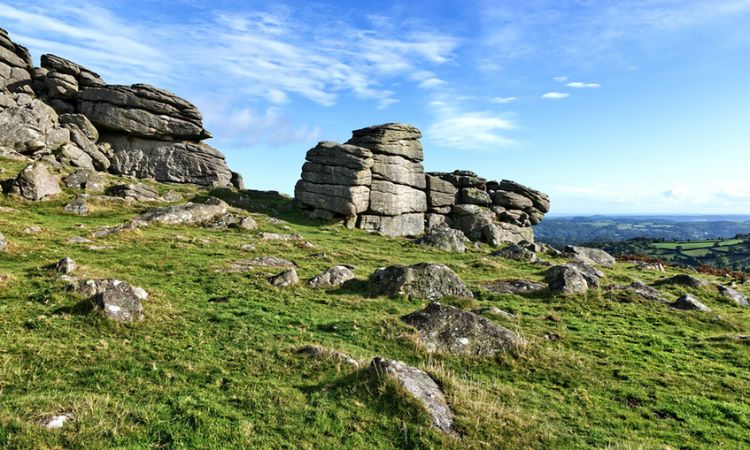

2. Isle of Mull, Scotland
The Isle of Mull, part of the Inner Hebrides in Scotland, boasts a coastline stretching nearly 300 miles. This extensive shoreline features dramatic bays and exceptional beaches, such as Calgary and those on the Ross of Mull, offering campers diverse terrains to explore.
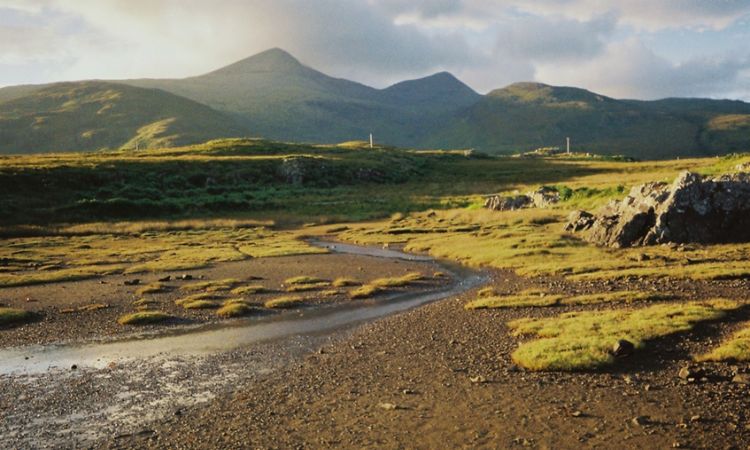

3. The Lake District National Park, England
The Lake District National Park is in the heart of the English countryside and was established in May 1951. It's renowned for its stunning lakes, valleys, and falls, offering picturesque settings for camping. The area provides opportunities for various outdoor activities, including hiking and boating, amidst breathtaking scenery.
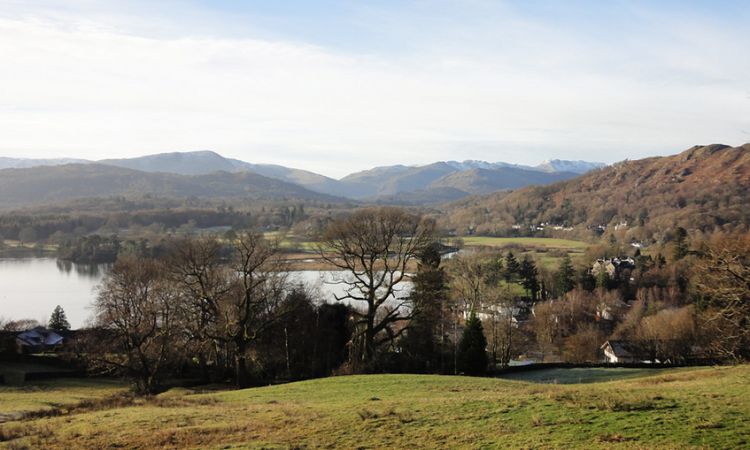

4. Eryri National Park (Snowdonia), Wales
Eryri National Park (Snowdonia) in North Wales is home to Snowdon, the highest mountain in England and Wales. With rugged peaks, serene lakes like Llyn Tegid, and stunning waterfalls, it’s perfect for wild camping. Campers can enjoy hiking, climbing, cycling, and water sports, surrounded by breathtaking landscapes and diverse wildlife.
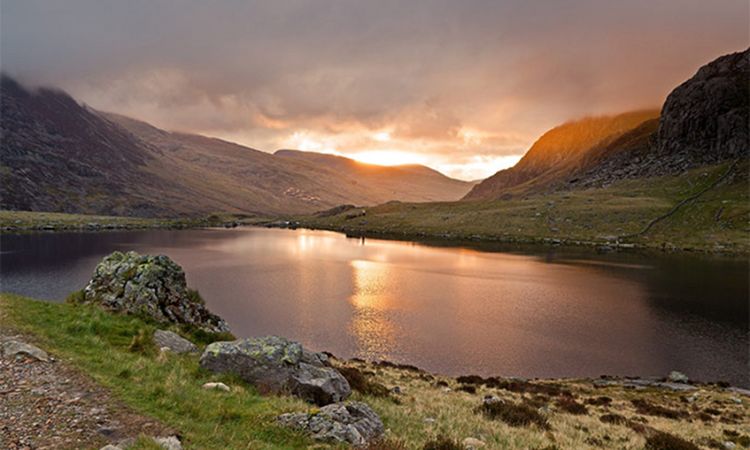

5. The Peak District National Park, England
The Peak District National Park, spanning Derbyshire, Staffordshire, Cheshire, Greater Manchester, and South and West Yorkshire, was established in April 1951 as the UK’s first national park. Covering 555 square miles, it features limestone dales, gritstone moorlands, and the famous Blue John Cavern, offering unique underground adventures for campers.
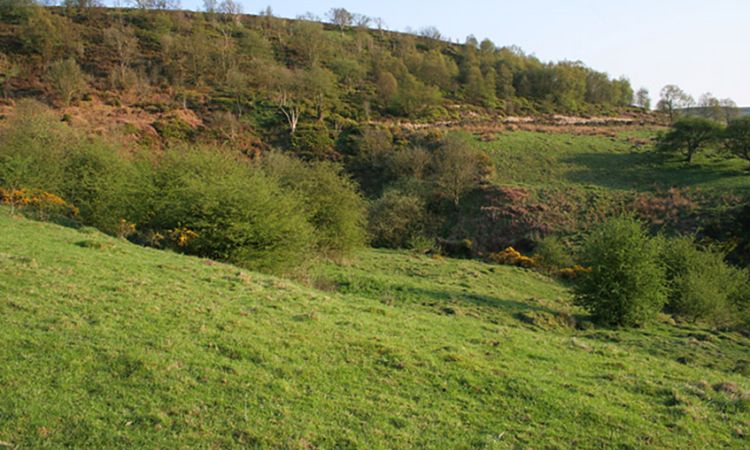

What Essential Gear Do You Need for Wild Camping in the UK?
For a successful outdoor recreation experience while wild camping in the UK, having the right gear is essential, as it ensures comfort, convenience, and safety. Here’s a list of essential gear to enhance your adventure at wild campsites UK.
Shelter and Sleeping Gear
Prepare a lightweight, weather-resistant tent or bivvy bag against the elements. Pairing it with a well-insulated sleeping bag and a sleeping mat ensures warmth and comfort, especially in colder conditions.
Weather-Appropriate Clothing
Layers are key. Pack moisture-wicking base layers, a warm fleece, and a waterproof outer shell. Don’t forget a hat and gloves, even in summer—the UK weather can surprise you.
Portable Power Station
When wild camping in the UK, you may be off the grid, which means you’ll need a reliable portable power station. It helps you keep devices charged, power small appliances, and stay connected, even when you’re far from conventional power sources. The EcoFlow DELTA 3 series offers a large capacity of 1024Wh and a strong 1800W output, giving you plenty of power to run essential gear and stay comfortable throughout your UK wild camping trips.
To go even further off-grid, consider pairing the EcoFlow DELTA 3 with the EcoFlow 110W Portable Solar Panel. It offers a compact, foldable design while efficiently providing renewable energy to keep your power station and devices charged in the wild.
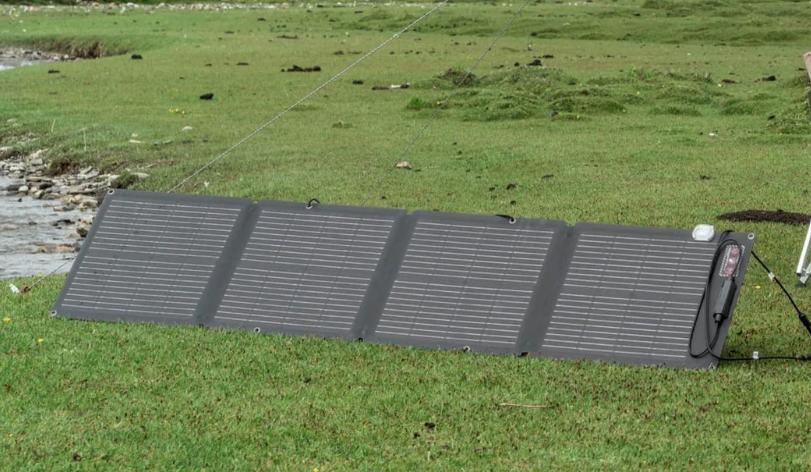

Cooking Equipment
A compact camping stove, lightweight cookware, and essential utensils allow you to prepare hot meals anywhere. Opt for a fuel-efficient stove that works well in unpredictable UK weather.
To keep your food fresh, a portable fridge is a smart addition. The EcoFlow GLACIER Portable Fridge runs up to 40 hours on a single charge and can even make ice cubes in just 12 minutes, perfect for chilling drinks after a long day outdoors.
Water Filtration System
Safe drinking water is essential for wild camping. A portable water filter or purification tablets allow you to drink from rivers and lakes without carrying heavy water supplies.
Portable Air Conditioner
Warm nights in a tent can be uncomfortable, especially during summer. A compact, battery-powered air conditioner can make a big difference by providing cool, refreshing air that helps you sleep better. The EcoFlow WAVE 2 Portable Air Conditioner is a great example. It's quiet, efficient, and installation-free, so it fits easily in your tent. It offers the fastest cooling and heating, runs up to 8 hours with the add-on battery, and operates at just 44dB for a quieter, more restful night.
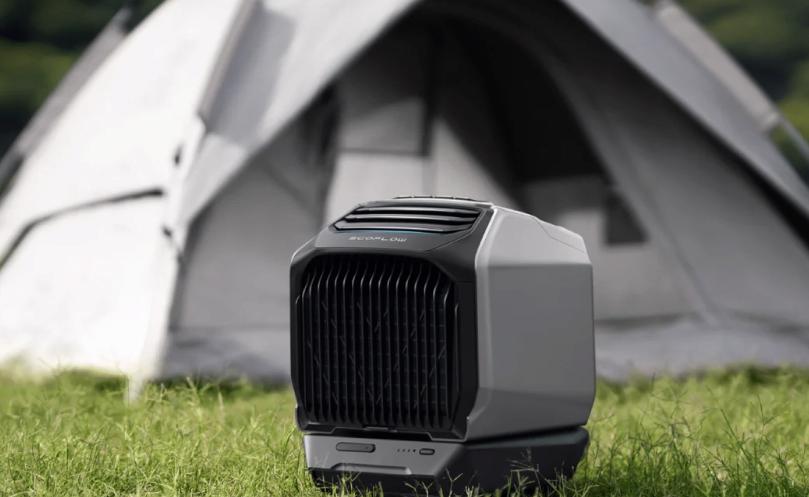

Navigation Tools
Don’t rely solely on your phone. Bring a paper map, compass, or GPS device to help you stay on track, especially in remote areas with no signal.
First Aid Kit
Always carry a first aid kit with bandages, antiseptic wipes, and pain relievers to handle minor injuries or emergencies.
Lighting
A headlamp or flashlight ensures you can set up camp, cook, or explore safely after dark. Rechargeable options reduce waste and ensure long-lasting use.
Safety Precautions You Should Take While Wild Camping
Before setting off on a UK wild camping trip, it's important to learn safety measures. Follow these precautions to protect yourself and the environment.
Plan Ahead: Check the weather, research your route, and inform someone of your plans to ensure a safe trip.
Pack Emergency Gear: Bring a first aid kit, flashlight, extra food, a whistle, and a fully charged power bank or portable power station. Know emergency contacts in case of trouble.
Pick a Safe Campsite: Choose a spot away from paths, buildings, roads, and livestock. Avoid cliffs, unstable ground, or areas prone to flooding.
Be Cautious of Wildlife: Store food securely to avoid attracting animals, and keep a safe distance from them.
Prepare for Weather Changes: Dress in layers, pack waterproof clothing, and be ready for sudden shifts in temperature or storms.
Stay Safe with Water: Purify any water before drinking, and camp at least 200 feet away from lakes and rivers to prevent contamination and flooding risks.
Cook Safely: Use a stove instead of open fires to minimize wildfire risks and prevent ground damage. Always check fire regulations in your camping area.
Dispose of Waste Properly: Bury toilet waste 200 feet from water sources or pack it out. Never bury sanitary products.
Stay Visible & Alert: Wear reflective gear at night and be aware of your surroundings. Keep noise levels low to avoid disturbing wildlife and fellow campers.
Conclusion
Wild camping in the UK is a fantastic way to experience nature up close and unplug from everyday life. It’s important to understand the legal aspects and choose your locations wisely, as well as pack the right gear and follow key safety tips. From remote moorlands to scenic coastal spots, there are plenty of beautiful places to explore. So get ready to embrace the outdoors, respect the environment, and enjoy the peaceful freedom that wild camping has to offer!
FAQs about Wild Camping UK
Is wild camping legal everywhere in the UK?
The short answer is NO, wild camping is illegal in England and Wales. While you are allowed to roam off footpaths in National Parks, you must obtain permission from the landowner before setting up camp, even if it's just a bivvy or tarp.
Where can you legally camp for free in the UK?
In Scotland, you can legally camp for free on most unenclosed land under the Land Reform (Scotland) Act 2003. In England, Wales, and Northern Ireland, free wild camping is generally not allowed without permission. However, some initiatives, like CampWild, provide access to wild camping areas that were previously restricted, though they usually charge a fee.
What is the punishment for wild camping in the UK?
Wild camping without permission in the UK is usually trespassing, a civil offence. Refusing to leave or causing disruption can lead to aggravated trespass, which carries fines up to £2,500 or up to three months in prison.